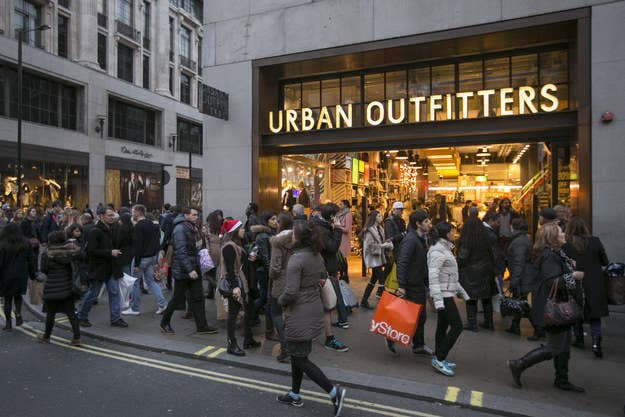
Urban Outfitters has become the fourth major retailer to commit to ending on-call scheduling for workers in its stores — though it will only cease the practice in New York, after the state's attorney general said the unpaid shifts may be violating state law.
While any move towards predictable scheduling counts as progress, the decision by Urban Outfitters underscores how difficult it is to implement fair workweek policies for the nation's part-time, low-wage workforce.
On-call scheduling, once most commonly associated with medical personnel, emergency responders and police officers, has become commonplace in the retail industry. Call-ins usually appear alongside regular shifts on retail store workers' schedules, but require a phone call before start-time — sometimes as little as two hours before — to find out if they're needed or not. If not, they go unpaid.
Some retail employees have said they're required to be "on call" for as many as 20 hours in a week, making it next to impossible to arrange other paid work, classes, eldercare or child care in that time, and generally wreaking havoc on people's lives.
The system has become a target of advocacy groups seeking to improve conditions for low-wage workers, and in April the New York Attorney General's office sent letters to 13 national retailers asking for more information on their use of uncompensated call-in shifts.
While companies voluntarily ending on-call shifts is good news, "we think that legislation is what's necessary for all companies to really stop this practice," said Rachel Laforest, director of the Retail Action Project, a workers' advocacy group. Getting rid of call-in shifts will help "make sure that retail workers have adequate time to live human lives, to care for children, elders, go to school or work a second job if need be, and be treated with dignity," she said.
In June, Victoria's Secret told employees it would stop using call-ins a few weeks after a BuzzFeed News investigation into the practice. Bath & Body Works, owned by the same parent company as Victoria's Secret, followed suit this month. Both were nationwide changes. During the summer, Abercrombie and Gap also committed to stopping the practice nationally over time, and said they would distribute schedules with required shifts to employees at least a week in advance.
The number of brands owned by those retailers outside their namesake chains is significant — they include Banana Republic, Old Navy, Athleta, Hollister, Anthropologie and Free People.
But only Urban Outfitters has restricted changes to New York. Its "phase-in process" will begin in November, according to New York Attorney General Eric Schneiderman. In a statement, he said the retailer will also provide employees with schedules at least one week before the start of the workweek.
Urban Outfitters didn't return a request for comment from BuzzFeed News.
"Our members who work for Victoria's Secret report they are able to feel human again, to some extent," Laforest of the Retail Action Project said. "If they were working part-time hours, they are able to reliably take a second-job. A few of our members are able to take classes or online classes, to reliably be in class or make schedules. Parents report that the mad dash or mad scramble around coordinating the care of children has eased up considerably."
"I'm hopeful, given the number of letters that the Attorney General sent, that this trend will continue," she added. "It's a good roll."

